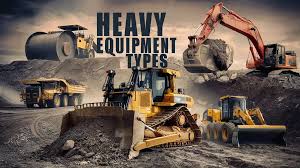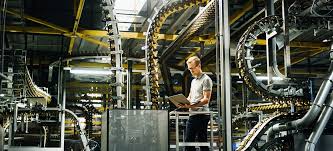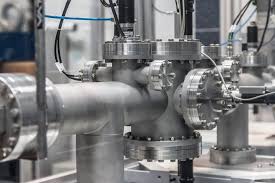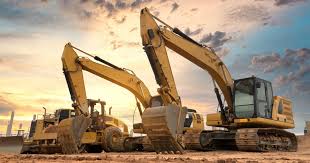Industrial Equipment: Supporting the Backbone of Modern Industries
Table of Contents
ToggleIndustrial equipment plays a crucial role in the functioning and growth of modern industries. From manufacturing and construction to logistics and energy production, the tools and machinery utilized in these sectors are integral to efficiency and productivity. This article explores the various types of industrial equipment, their applications, and their significance in advancing technology and economy.
Definition and Scope of Industrial Equipment

Industrial equipment encompasses a broad range of machinery, tools, and devices used in industrial operations. These include heavy-duty machines for large-scale manufacturing, precision tools for specialized tasks, and automated systems designed to optimize efficiency. The scope of industrial is vast, catering to industries such as automotive, aerospace, food processing, pharmaceuticals, and more.
Categories of Industrial Equipment
The variety of industrial equipment can be categorized based on their functions and applications:
- Material Handling Equipment
This includes conveyors, forklifts, and cranes used for moving, lifting, and storing materials. They are vital in warehouses, distribution centers, and factories. - Production Machinery
Machinery such as lathes, milling machines, and presses fall under this category. These tools are essential in manufacturing processes, including cutting, shaping, and assembling components. - Construction Equipment
Heavy-duty machines like excavators, bulldozers, and loaders are indispensable in construction projects. They are designed to handle tasks such as digging, lifting, and transporting heavy materials. - Energy Equipment
This category includes turbines, generators, and solar panels, which are crucial for producing and managing energy. They play a pivotal role in industries focused on power generation and renewable energy. - Testing and Quality Control Equipment
Industrial operations require stringent quality checks. Testing equipment such as spectrometers, hardness testers, and thermal cameras ensure that products meet industry standards.
Importance of Industrial Equipment in Modern Industries
Industrial equipment significantly impacts the efficiency, productivity, and safety of various industries. Without these tools, many industrial operations would become time-consuming, labor-intensive, and prone to errors.
- Enhancing Productivity
Machines and tools automate repetitive tasks, allowing industries to produce goods at a faster rate. This efficiency leads to higher output and reduced production costs. - Ensuring Safety
Advanced equipment incorporates safety features that protect workers from accidents. For example, automated systems can handle hazardous tasks, minimizing human exposure to dangerous environments. - Driving Innovation
Modern industrial equipment integrates technologies such as robotics, IoT (Internet of Things), and AI (Artificial Intelligence). These innovations streamline processes and open doors to new possibilities in industrial applications.
Challenges in Industrial Equipment Management

Despite their benefits, managing industrial equipment presents several challenges:
- Maintenance and Downtime
Equipment requires regular maintenance to function efficiently. Unexpected breakdowns can lead to downtime, affecting production schedules and increasing costs. - High Initial Costs
Purchasing and installing industrial equipment often involve significant investments. This can be a barrier for small and medium-sized enterprises. - Technological Obsolescence
Rapid advancements in technology mean that equipment can become outdated quickly. Industries must constantly upgrade to stay competitive. - Environmental Concerns
Certain types of equipment may contribute to pollution or energy wastage. Industries are increasingly seeking sustainable alternatives to address these issues.
Emerging Trends in Industrial Equipment
The industrial sector is evolving, with new trends shaping the development and usage of equipment:
- Automation and Robotics
Automation reduces the need for manual labor and improves precision. Robots are increasingly used in tasks such as welding, assembly, and packaging. - Sustainability and Green Technology
Eco-friendly equipment that minimizes energy pg slot consumption and emissions is gaining popularity. For instance, electric-powered machinery is replacing traditional fuel-powered options. - Smart Equipment
IoT-enabled devices allow for real-time monitoring and data analysis, enabling predictive maintenance and optimizing performance. - 3D Printing
This technology is transforming manufacturing by enabling rapid prototyping and on-demand production of parts.
The Role of Industrial Equipment in Economic Growth

Industrial equipment contributes significantly to economic development by driving industrial growth and creating job opportunities. The machinery manufacturing sector itself is a major contributor to GDP in many countries. Additionally, industries equipped with advanced machinery can compete globally by offering high-quality products at competitive prices.
Maintenance and Longevity of Industrial Equipment
Proper maintenance is essential to maximize the lifespan and efficiency of industrial equipment. Industries implement strategies such as:
- Preventive Maintenance
Regular inspections and servicing prevent potential issues and reduce downtime. - Predictive Maintenance
Using sensors and IoT technology, industries can predict equipment failures and take proactive measures. - Training and Skill Development
Ensuring that operators are well-trained minimizes misuse and improves the overall performance of equipment.
The Future of Industrial Equipment
The future of industrial equipment lies in further integration of advanced technologies. With the rise of Industry 4.0, equipment is becoming more interconnected, intelligent, and efficient. Innovations such as AI-driven machinery, augmented reality for maintenance, and blockchain for supply chain management are set to revolutionize the industrial landscape.
Conclusion
Industrial equipment is the backbone of modern industries, enabling them to meet the demands of a dynamic and competitive market. As technology continues to evolve, the role of these machines will become even more pivotal in shaping the future of industrial operations. By embracing advancements and addressing challenges, industries can ensure sustainable growth and efficiency for years to come.











